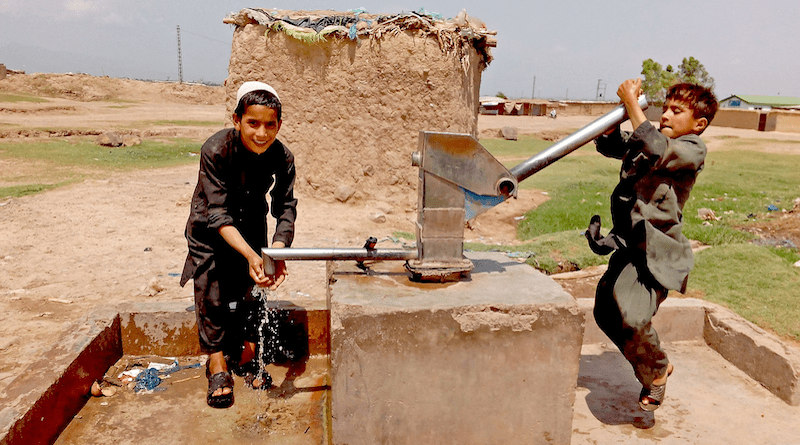Pakistan’s Afghan Refugee Quandary And Narratives – OpEd
Recently, Pakistan’s decision to deport illegal immigrants has sparked significant debate both domestically and on the global stage. The issue primarily pertains to Afghan nationals, a community that has found refuge in Pakistan for decades. With the Afghan population in Pakistan surging to 3.7 million, including a mere 1.3 million who are officially registered, the need to address the challenge of illegal immigration has become increasingly urgent. This article seeks to shed light on the multifaceted aspects of Pakistan’s decision to deport illegal immigrants, its implications, and the broader context in which it is taking place.
It is essential to understand that Pakistan’s decision to deport illegal immigrants is not an attack on Afghan refugees per se. Rather, it is a response to the influx of illegal immigrants from various nationalities who have resided in Pakistan without the necessary legal status. The decision is rooted in economic constraints, security challenges, and the country’s limited capacity to manage the growing number of illegal immigrants.
Over the past four decades, Pakistan has demonstrated remarkable generosity and goodwill by hosting a large population of Afghan refugees. This hospitality is deeply ingrained in Pakistan’s cultural and historical DNA. The country has provided shelter and opportunities to those fleeing conflict and instability, and it has been a commendable act of humanity. However, it is important to acknowledge that Pakistan’s compassion has not come without its fair share of challenges.
One of the main issues with hosting a large refugee population, especially one without proper documentation, is the potential for illegal activities and security risks. The presence of illegal immigrants poses a significant challenge to the safety and well-being of Pakistan and its citizens. This is not a unique problem but a global issue that many countries face, and Pakistan, like any other nation, has the right to address this problem within the bounds of international norms and laws.
Furthermore, it is unfortunate to note that Afghan nationals have been linked to various security concerns within Pakistan. Credible intelligence reports suggest that some Afghan citizens have joined the ranks of terrorist organizations such as the Tehrik-i-Taliban Pakistan (TTP) and the Islamic State Khorasan Province (ISKP) against the directives of the supreme Afghan commander Hibatullah Akhundzada. This is a clear display of disobedience and a source of concern for Pakistan’s national security.
In 2023, Afghan citizens were reportedly involved in 58% of the terrorist incidents in Pakistan. This alarming statistic reinforces the need for a robust response to the issue of illegal immigration. It is crucial to emphasize that Pakistan’s decision to deport illegal immigrants is not an arbitrary or vindictive action; rather, it is a response to genuine security concerns. Furthermore, with improved economic and security conditions in Afghanistan, there is a compelling case for the return of Afghan citizens to their home country. Many Afghans initially left their homeland due to war, instability, and uncertainty. Now that peace and stability have been achieved in Afghanistan, their continued illegal stay in neighboring countries should indeed be a matter of disrepute for the international community.
It is worth noting that no country in the world accommodates illegal immigrants of any status. This applies universally, and Pakistan, as a sovereign nation, has the right to return illegal immigrants to their home countries. The decision to deport illegal immigrants should not be misconstrued as an assault on Afghan or Pashtun communities. It is a rightful demand in accordance with international norms and laws. Pakistan’s national policy regarding Afghan refugees remains unchanged. Those who speculate otherwise are often seeking attention on social media or indulging in unwarranted conjecture. The reality is that the Pakistani government envisages a phased and time-bound repatriation of all illegal foreigners residing in the country. This decision is consistent with global practices. In 2023 alone, countries like Iran, Turkey, the United States, and India collectively deported over 100,000 Afghan refugees. Pakistan’s approach aligns with these deportations, and it should not be perceived as an exception.
Moreover, Pakistan remains in contact with Afghan authorities and is committed to engaging with them on all matters of bilateral interest. This includes facilitating the safe return of illegal Afghan immigrants to their home country. In conclusion, Pakistan’s decision to deport illegal immigrants, which includes a significant number of Afghan nationals, is a matter of security and practicality. It is not a departure from Pakistan’s long-standing tradition of providing refuge to those in need. Rather, it reflects the country’s growing security concerns and economic challenges. The decision is in line with international norms and practices, and it underscores Pakistan’s determination to protect its citizens and maintain peace and stability within its borders.
With Afghanistan witnessing improvements in economic and security conditions, the return of Afghan citizens to their home country is not only feasible but also essential. The continued presence of illegal immigrants poses a significant challenge to Pakistan’s security, and addressing this issue is not only Pakistan’s right but also its responsibility. It is important for the international community to recognize the legitimacy of Pakistan’s concerns and support its efforts to manage illegal immigration while preserving its tradition of hospitality and goodwill.

